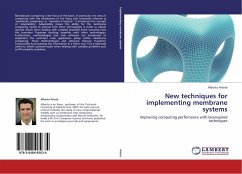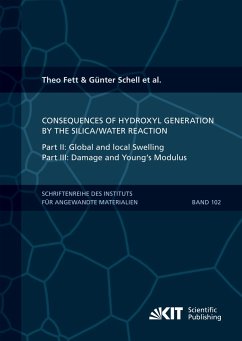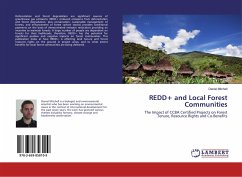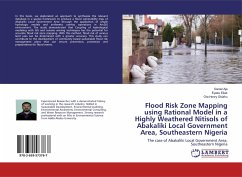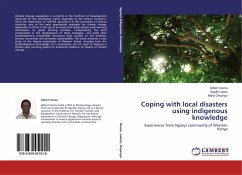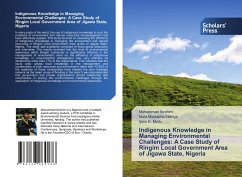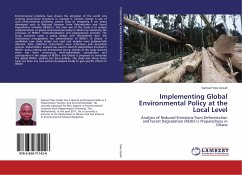
Implementing Global Environmental Policy at the Local Level
Analysis of Reduced Emissions from Deforestation and Forest Degradation (REDD+) Preparedness in Ghana
Versandkostenfrei!
Versandfertig in 6-10 Tagen
36,99 €
inkl. MwSt.

PAYBACK Punkte
18 °P sammeln!
Environmental problems have drawn the attention of the world into creating governance structures to manage it. Climate change is one of such environmental problems, several ways of mitigating it are being developed such as Reduced Emission from Deforestation and Forest Degradation Initiative (REDD+). The main aim of the study is to analyse implementation of global environmental policy in Ghana by examining the processes of REDD+ institutionalisation and preparedness activities. The study examines using a policy design and effectiveness lens, the institutional arrangements for administration of...
Environmental problems have drawn the attention of the world into creating governance structures to manage it. Climate change is one of such environmental problems, several ways of mitigating it are being developed such as Reduced Emission from Deforestation and Forest Degradation Initiative (REDD+). The main aim of the study is to analyse implementation of global environmental policy in Ghana by examining the processes of REDD+ institutionalisation and preparedness activities. The study examines using a policy design and effectiveness lens, the institutional arrangements for administration of REDD+ in Ghana. A qualitative case study design was used and samples were judgmentally selected. Data collection instruments were interviews and secondary sources. Stakeholders' analysis was used to identify stakeholders involved in REDD+ policy making and institutional set-up. Results of the study showed there has been continuous multi-stakeholder consultation and participation in the stages of REDD+ and Ghana is prepared to transcribe the global REDD+ policies into local policies. The study also shows there have not been any new policies developed locally to give specific effects to REDD+.



